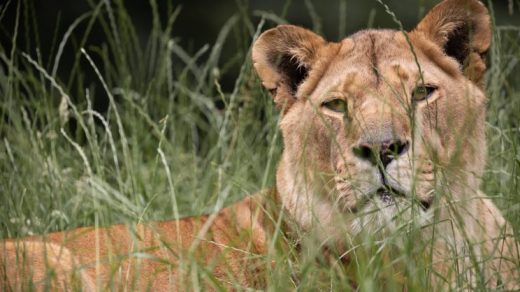WWF calls for change after new research reveals 56 per cent of secondary schools don’t offer students outdoor learning

As children go back to school after the summer holidays, a new report, published today (9 September) by conservation organisation, the World Wide Fund for Nature (WWF), finds that, despite the hard work of many passionate teachers, most pupils in UK schools are missing out on regular opportunities to experience nature that have been found to improve mental well-being and attainment.
New research in the Schools for Nature report, conducted by The Education Company, and with input from 1,885 schools across the UK, shows that only 24 per cent of schools provide daily opportunities for pupils to experience nature.
The report also reveals that as pupils progress from primary to secondary school, the likelihood of experiencing nature on a daily basis at school diminishes, dropping from 30 per cent to 12 per cent. 56 per cent of secondary schools said they don’t offer any outdoor learning to any pupils. 79 per cent of parents in the UK also believe their children’s screentime has gone up since the pandemic.
The report data also reveals a ‘nature gap’ between schools in better-off and more deprived areas. While 52 per cent of students in state schools with a low percentage of free school meals are given daily opportunities to experience nature, only 18 per cent attending state schools with a high percentage of free school meals have these opportunities.
Overall, the report finds that currently, students’ chances of benefitting from spending time in nature – including benefits to their physical health, mental wellbeing and quality of education – are a lottery, depending on school year group, size, location, and affluence of the catchment area.
According to the WWF, being in nature not only helps pupils, it helps teachers too. Teachers can also benefit from higher job satisfaction through outdoor learning, including positive effects on their teaching practice and professional development.
The report includes case studies on schools that have successfully integrated nature into their curriculum and offers practical advice on how more schools can introduce them. In light of the findings, WWF wants all schools to be supported to provide regular nature experiences and charities will be key to realising this vision.
Tanya Steele, CEO at WWF, said:“Schools and teachers have a vital and unique role to play in building children’s connection with nature – helping them learn about the wonder of the natural world and how to protect it.
“Getting out into nature is good for our physical and mental wellbeing too – and it doesn’t have to cost the earth. Bringing nature into the playground, even in small ways, can give pupils a chance to learn and connect with the natural world around them.”
Opportunities for pupils to experience nature at school can take place more formally during lessons, as part of their free time, or through school trips, extra-curricular activities and clubs. It doesn’t need to be expensive and can be included in a wide range of subjects.
But less than a third (27 per cent) of UK schools say that outdoor learning is embedded into their curriculum for all students.
The report indicates that the most common practice when it comes to access to nature is through school trips and extra-curricular activities and clubs, with a quarter (25 per cent) of schools saying that school trips to natural environments take place annually for all, or nearly all students.
The WWF said that while school trips and extra-curricular nature-based activities are important, they are also infrequent and optional. The cost-of-living crisis is causing both parents and schools to revise their engagement with school trips, and voluntary activities are likely to attract students who are already engaged with, or interested in, nature.
The organsation added that rather than addressing inequalities based on education phase and socio-economic factors, optional activities may actually reinforce and exacerbate existing disparities.
The WWF said there is a growing body of evidence showing that when children and young people connect with nature through learning, there are a wide range of positive outcomes for pupils, teachers, and for nature. These include:
- Mental wellbeing
- Improved attainment
- Benefits for teachers
- Benefits for nature
The People’s Plan for Nature – drawn up by a citizen’s assembly of ordinary people from around the UK in 2023 – set out the public vision for how nature should be protected and renewed in the UK. The plan’s vision also calls for nature to be embedded into schools and for all children, regardless of where they live to be able access nature.
WWF said it wants all schools to be supported in allowing pupils to have regular nature experiences as a part of their educational entitlement. The organisation said this should not be dependent on school phase, type, location or the passion of individual members of staff.






